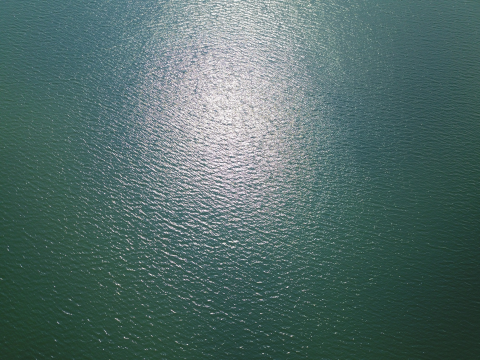
A response to a survey posted on Encounters with Anarchism, exploring our beautiful ideal
1. — How would you most succinctly define anarchism? Is there a shared “anarchist project” — and, if so, how would you characterize it?
At the heart anarchism is anti-state / anti-capitalist, or as the old saying goes “no gods, no masters.” The explanations from this can go on for a bit, but overall the shared “anarchist project” is a life project that is characterized by anarchy.
2. — What is the relationship between anarchism and the concept of anarchy?
Anarchy is the idea, while anarchism is the ideal. Ideas change and develop over time, whereas the ideals of anarchism are defined concepts at a specific time and framework; the -ism also implies a prior movement towards something.
3. — What is the value of tradition within the anarchist milieus and what might be its uses?
Of course!, tradition and non-tradition are valued within the milieus, spaces, and movements of anarchy. Anarchist history (against Leviathan), it’s human resistance, insurrections the world over and revolution, and other important anarchist pursuits.
4. — What, specifically, is the role to be played in the present by the anarchist literature — whether theoretical or artistic — of the past?
Anarchist literature knows it’s roll, and that is to… Attack! But, also remember; a remembrance of anarchist things past. The documenting of the usual and unique past, as well as the more famous historical events from an encompassing perspective. It's everything.
5. — What are the most significant challenges facing anarchists — and anarchism, as you understand it — in the present?
Building a mass movement of anarchists and friends… like a federation. Just kidding, but maybe. If that’s where you’re at, nothing wrong. Do it. Neighborhood anarchist friends are the best.
Most of all, building that life project.
6. — How would you characterize the present state of anarchist activity (outside the realm of theory and propaganda)?
Depends on where you look and how far recently back into time you go. In North America, the current state of anarchist activity seems largely centered around antifa, although the high water mark for that may have been a year ago. Before that, it was Occupy everything(!) in 2011 and the summit hopping years of anti-globalization from 1999 on into the 2000s. What is today? The anarchist gathering as camping adventure over book fair over meetings over riot!? It looks different across the world, but seems especially defined by region and anarchist tent affiliation. Hurricane Katrina, Hurricane Harvey, the Ferguson insurrection, Standing Rock, and other events, to name only a few, have painted an alternative picture of possibilities.
7. — How would you characterize the present state of anarchist theory and propaganda?
With the Internet, social media, and communication as it is today, brings with it a characterization of speed an ability to share ideas over large distances instantaneously. Quality conversation and dialogue seems to have deteriorated a bit over letter correspondence; but it also may just be more difficult to find, as there are so many things out there. The act of writing letters, the time involved in the previous literary boom of magazines and correspondence does seem to have unfortunately largely faded away, for a different more modern approach of communication and typing. The technology of communication and learning, sharing, critiquing, and comments.
8. — What are the most urgent changes to be made in anarchist practice moving forward?
Perhaps , a step away from the infighting and attacking of other anarchists and ideas in an uncritical and non-productive manner. Critique is healthy, but having good faith conversations over the all-to-common sectarian squabbles becomes too much over time, especially for new people. The poor critique is a turn off. Next, after we’ve solved all the relationship problems ;), the commune, the collapse, and the forest garden.
9. — What is the role of some kind of “anarchist unity” moving forward? What form could or should that unity take?
We don’t all have to get along, but perhaps some shouldn’t relate other anarchist thinkers as a demigod to their only god of whatever. The platform federation or the union of egoists, down to the neighborhood affinity groups and friends / individuals, let’s do it all.
10. — What are the greatest needs with regard to new anarchist theory, propaganda, literature and art?
Anarchist spaces offline and online to share these things IRL with other anarchists and friends.
11. — Do you currently identify with any particular anarchist current or tendency — and, if so, how do you characterize your position?
Anti-civ much younger growing up, post-left, green anarchy, but today just an anarchist. The tent is big, come on in and hang out for a bit, say hi. Perhaps, the oft said quote by Fredy Perlman, that they’re just a “violinist” or something like that, although violins are perhaps a bit too bluegrass and unplayable here.
12. — What additional questions would it be useful to pose to a broad anarchist audience?
Offline: How is it to be done? (this is the age old question, rephrased, so many ways, again)
Online: How do we organize the international anarchist __________ work flow? Helping ________ and____________ anarchist _____ around the world?
13. — Would you be interested in participating in future surveys, perhaps addressing more specific elements of anarchist theory, practice and culture?
Perhaps. And specifically, how anarchists like yourself use this information gathered from an international survey of this sort. Does it change anything for you? And, if so, how so? What do you think that looks like for everyone else? What are some gems to share from the takeaway? Thanks for doing this, - stalking the earth

Add new comment